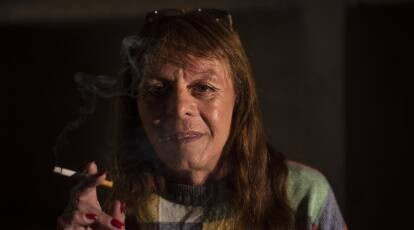
Argentina's former dictatorship, which lasted from 1976 to 1983, was a dark period in the country's history. The regime was notorious for its human rights abuses, including the kidnapping, torture, and murder of tens of thousands of people. Among those who suffered were transgender women like Julieta Gonzalez.
Julieta Gonzalez was a trans woman who lived in Buenos Aires during the dictatorship. She was arrested by the regime's security forces in 1978 and taken to a detention center where she was tortured and abused. She was eventually released, but her health had been severely damaged by the experience.
Julieta's story is just one of many.
Transgender women were particularly vulnerable to the regime's brutality. They were often targeted for their gender identity and subjected to violence and abuse at the hands of the authorities. The dictatorship also sought to erase any trace of transgender identity from Argentine society. The regime enforced strict gender roles and punished those who did not conform. Transgender people were forced to hide their identity or face persecution.
Today, Argentina has made significant progress in recognizing and protecting the rights of transgender people.
In 2012, it became one of the first countries in the world to allow individuals to legally change their gender without undergoing surgery or hormone therapy. The country has also introduced affirmative action policies to ensure that transgender people are not discriminated against in the workplace.
However, there is still much work to be done. Transgender people in Argentina continue to face discrimination and violence. The legacy of the dictatorship's persecution of transgender women still lingers, and it will take time to fully overcome. The dictatorship in Argentina was a dark period in the country's history, and transgender women like Julieta Gonzalez suffered greatly under its brutality. However, there are also stories of bravery and resilience, as transgender women like Lohana Berkins fought back against the regime.
Today, Argentina has made progress in recognizing and protecting the rights of transgender people, but there is still much work to be done to ensure that they can live free from discrimination and violence.
© 2025 Latin Times. All rights reserved. Do not reproduce without permission.




